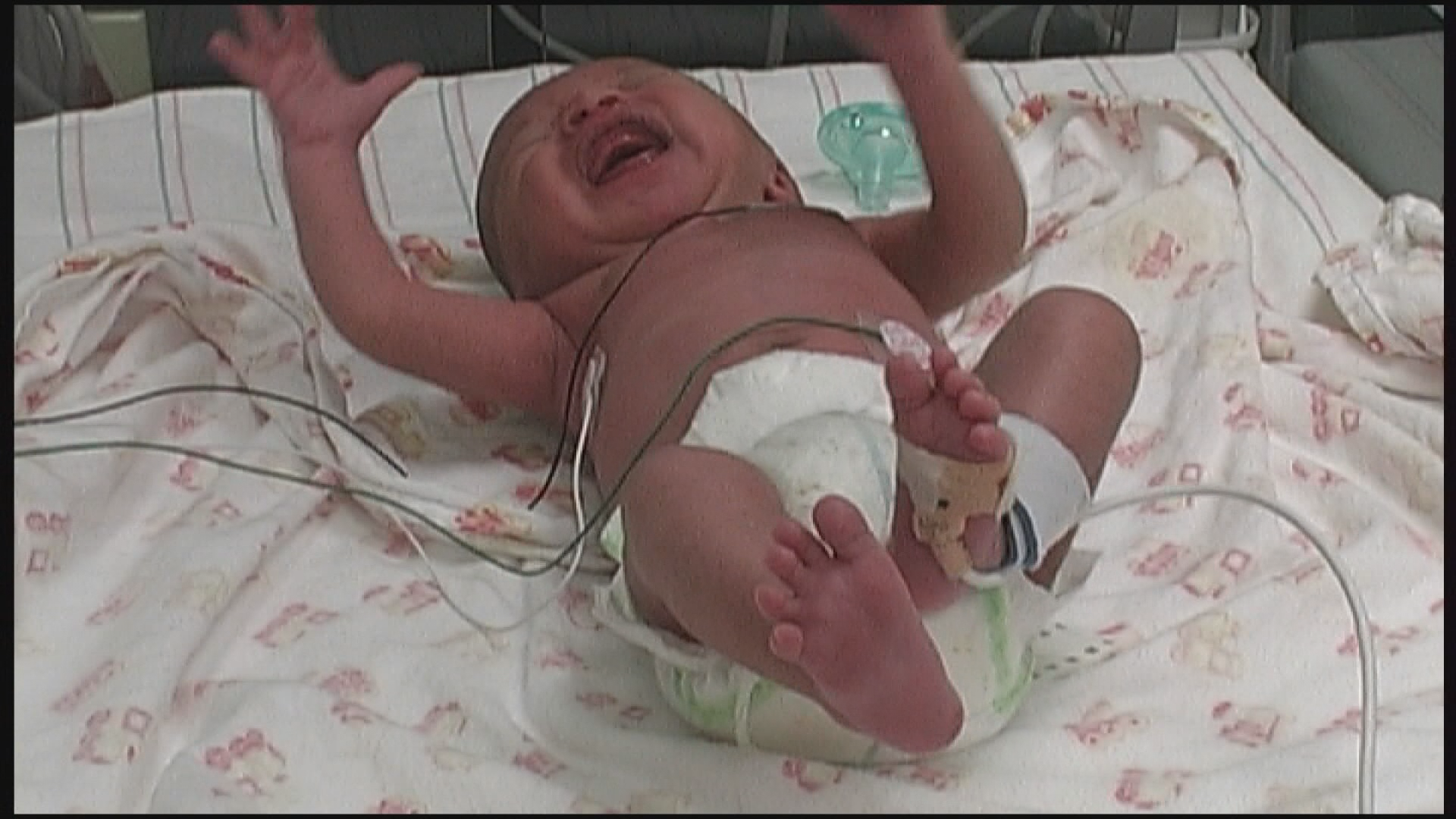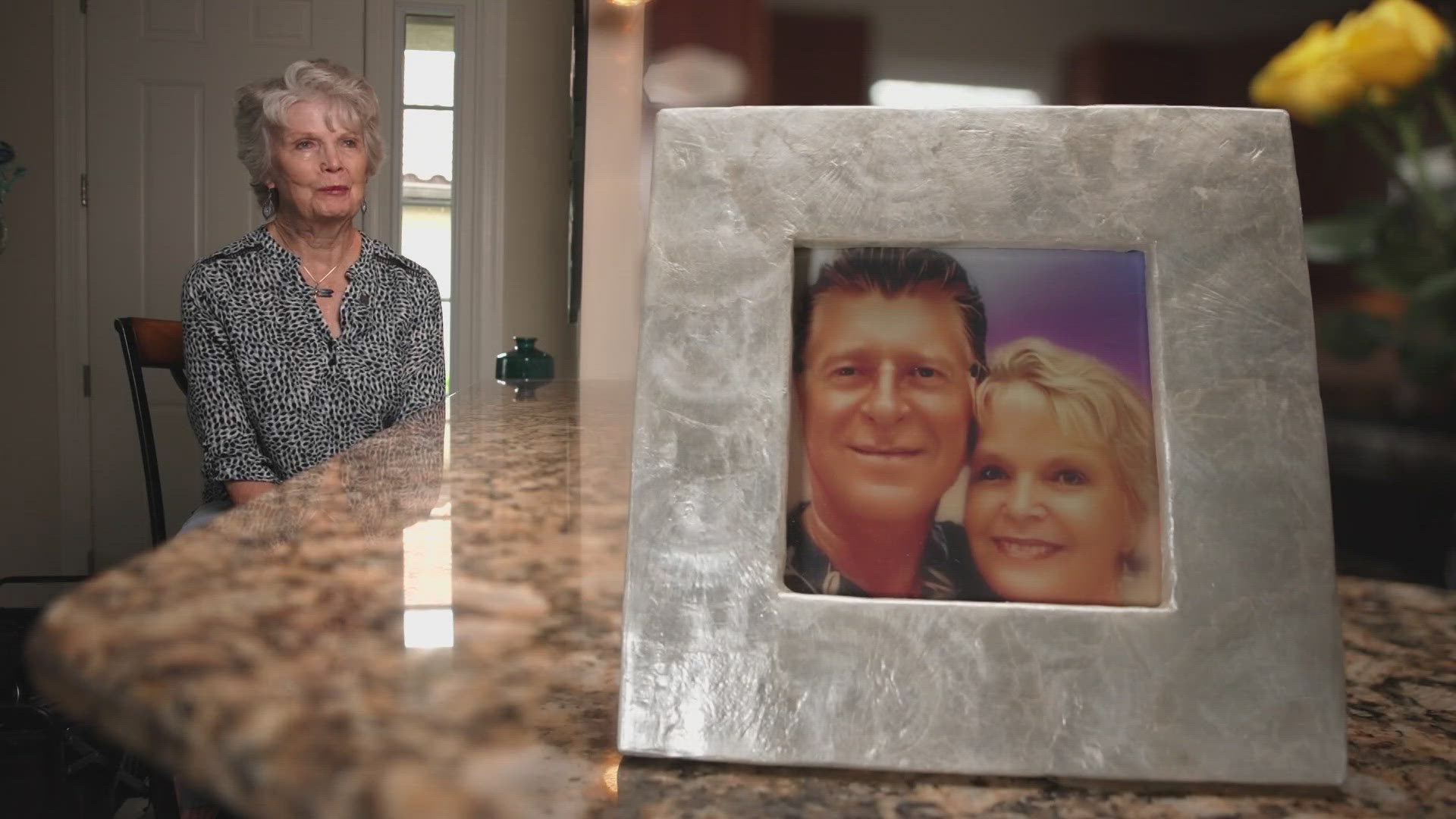Data from the Centers for Disease Control shows the number of babies born addicted to drugs nationwide has quadrupled in the past 15 years. In Florida, the number is higher than it has ever been.
Enzo is 4 years old, tall, handsome and full of energy.
The boy is a beautiful gift for his parents Deanna and Bill Decicco.
"It's been our greatest adventure,” Deanna Decicco said.
However, life didn't start out easy.
The couple adopted Enzo when he was just a few days old, sight unseen.
When the couple got to the hospital to meet him, they would see something that no parent would ever imagine their newborn child would have to go through.
“They're screaming the most inconsolable scream,” Decicco said. “It’s an excruciating pain. They are vomiting. They have diarrhea.”
Enzo was detoxing from drugs.
“It's a scream like no other scream and it’s sad,” Decicco said.
Enzo was one of the thousands of babies born every year addicted to drugs.
A look at the numbers
In Florida, the numbers have continued to rise. Some say it's better reporting, but most officials call it a growing epidemic.
In 2007, the number of babies born addicted in the state could have filled an entire elementary school. There were 536, according to data from the Florida Agency for Health Care Administration.
In 2015, there were about 2,487 babies born addicted to drugs, which is about the same size as students enrolled at one high school.
In 2016, some 4,215 Florida babies were born addicted to drugs.
Looking at the numbers for 2016, Hillsborough County has the most amount of babies born addicted compared to the other Florida counties.
“It’s a national epidemic and Florida has been hit hard,” said Dr. Cherie Foster, Neonatologist and Medical Director for the NICU at St. Joseph’s Women's Hospital. “They are irritable, feed poorly, high pitch cry. They are very sick.”
Treatment for one baby can cost around $250,000.
Foster said this year so far at St. Joseph's Women's Hospital their numbers have decreased signficantly since 2015.
“Our institution numbers have gone down, but this is still a major epidemic,” Foster said.
What’s being done
In 2013, Attorney General Pam Bondi created a task force on prescription drug abuse and newborns. In its final report, the task force made recommendations on how to decrease the numbers. The report included increasing early prevention programs and educating health care providers.
10Investigates also contacted the Department of Children and Families (DCF) after finding an article in 2008 that showed they opened up the state’s first drug dependent newborn unit in Orlando.
It said that the unit was dedicated to serving newborns dependent on drugs. It includes three investigators, a supervisor and program administrator.
In an email with DCF, the department states the unit is no longer active and cases involving substance-exposed newborns are handled by child protective investigators.
Full Statement from DCF:
“DCF works with a variety of partners – such as our community-based care organizations and the Ounce of Prevention Fund of Florida – to provide services to parents struggling with addiction and mental health issues. Empowering parents to cope with stress, take control of their finances, and be positive role models for their children is the best way we can promote strong, resilient families.
Child removals occur for a myriad of factors that contribute to a caregiver’s inability to adequately and safely parent their children at that time. Substance abuse can be a result of or exacerbate mental health, domestic violence, and many other issues that might cause a home to be unsafe for a child, requiring their removal. Chapter 39.01(30)(g), F.S., requires “evidence of extensive, abusive, and chronic use of a controlled substance or alcohol by a parent when the child is demonstrably adversely affected by such usage” to meet the standard “harm” (i.e., maltreatment). Child protective investigators assess to what degree the parent’s behavior, thinking, or actions are to the point that a child is being “demonstrably adversely affected.” This section of the law also denotes that exposure of a newborn infant to a controlled substance or alcohol, as evidenced by a drug test administered at birth, “automatically” qualifies as harm or maltreatment to a child. Substance exposure at birth, would be considered a “Present Danger Threat” up until the time that an investigator obtains more information to determine if the parent’s substance use is to the point of also being a pervasive condition (i.e., an Impending Danger threat). Unfortunately, it is difficult to quantify how many infants are removed as a result of substance abuse alone.
The department depends on medical professionals at hospitals and clinics to be the first line of defense to identify substance exposed newborns so that we can take action; providing services to the mother and ensuring the safety of the child. Healthcare providers are professionally-mandated reporters and must call the Florida Abuse Hotline if they have evidence or reasonable suspicion that a child is in danger.
The Drug Dependent Newborn Unit is no longer active and cases involving substance-exposed newborns are handled by child protective investigators.”
10Investigates also asked Gov. Rick Scott several questions about the state’s plan to decrease the number of babies addicted to drugs at a news conference where he announced a $50 million proposal to fight the opioid epidemic.
“Every time that you see a problem and it has not been resolved you are always, I’m a business guy you say, in my business life if it’s not working what do I do differently to try and change and that’s what we’re doing with this,” Scott said. “I mean everyone I know is trying to come up with solutions and the best solution is to stop the addiction.”
“It's very upsetting because so many of these children are victim of circumstance and there's nothing being done about it. No repercussions for mothers and no places for children to go,” Deanne DeCicco said.
For Deanne Decicco, she says she doesn't have the answers and unfortunately neither do officials—when it comes to not only the growing numbers, but what the long-term effects are when a baby is born addicted. She said here have never been any studies on the long-term effects.
"There's going to be a huge epidemic of these children in our world that have had no resources or no help," Deanne DeCicco said.
While Enzo may be taller than most 4-year-old children, he is on a journey with several unknowns.
“Honestly, I have more people tell me if I didn't know you, I wouldn’t know neonatal abstinence syndrome existed,” Deanne DeCicco said.
District Attorneys in Tennessee have also filed a lawsuit against opioid manufacturers. It was filed on behalf of local babies born addicted to drugs.
►Make it easy to keep up-to-date with more stories like this. Download the 10News app now.
Have a news tip? Email desk@wtsp.com, or visit our Facebook page or Twitter feed.


